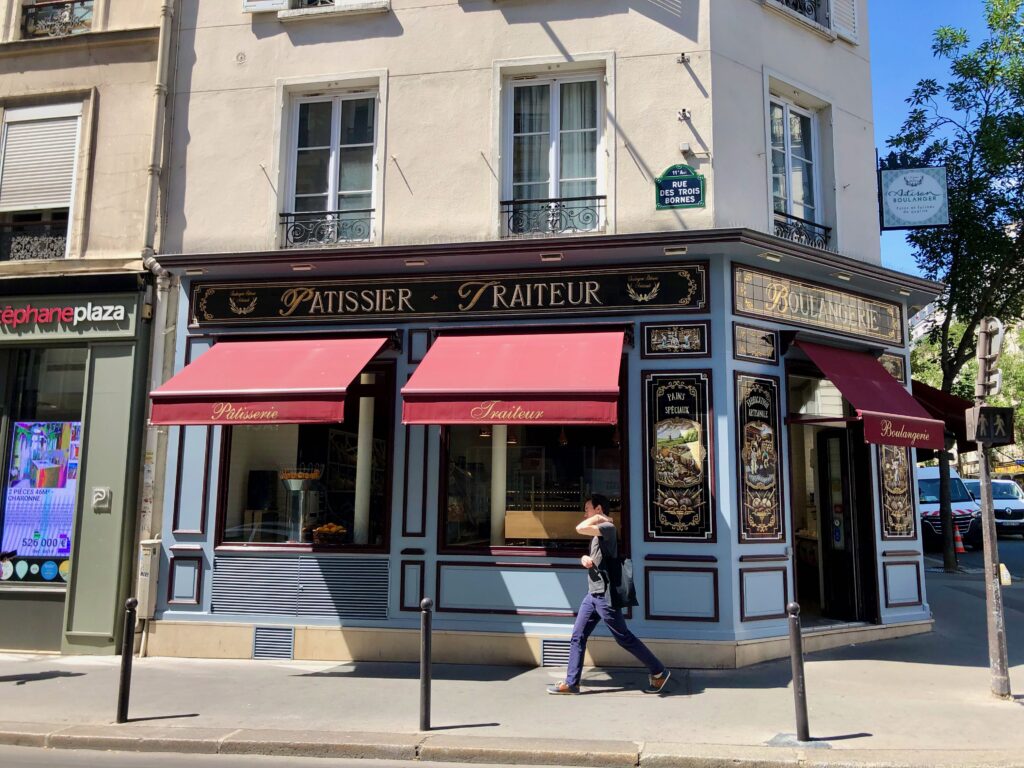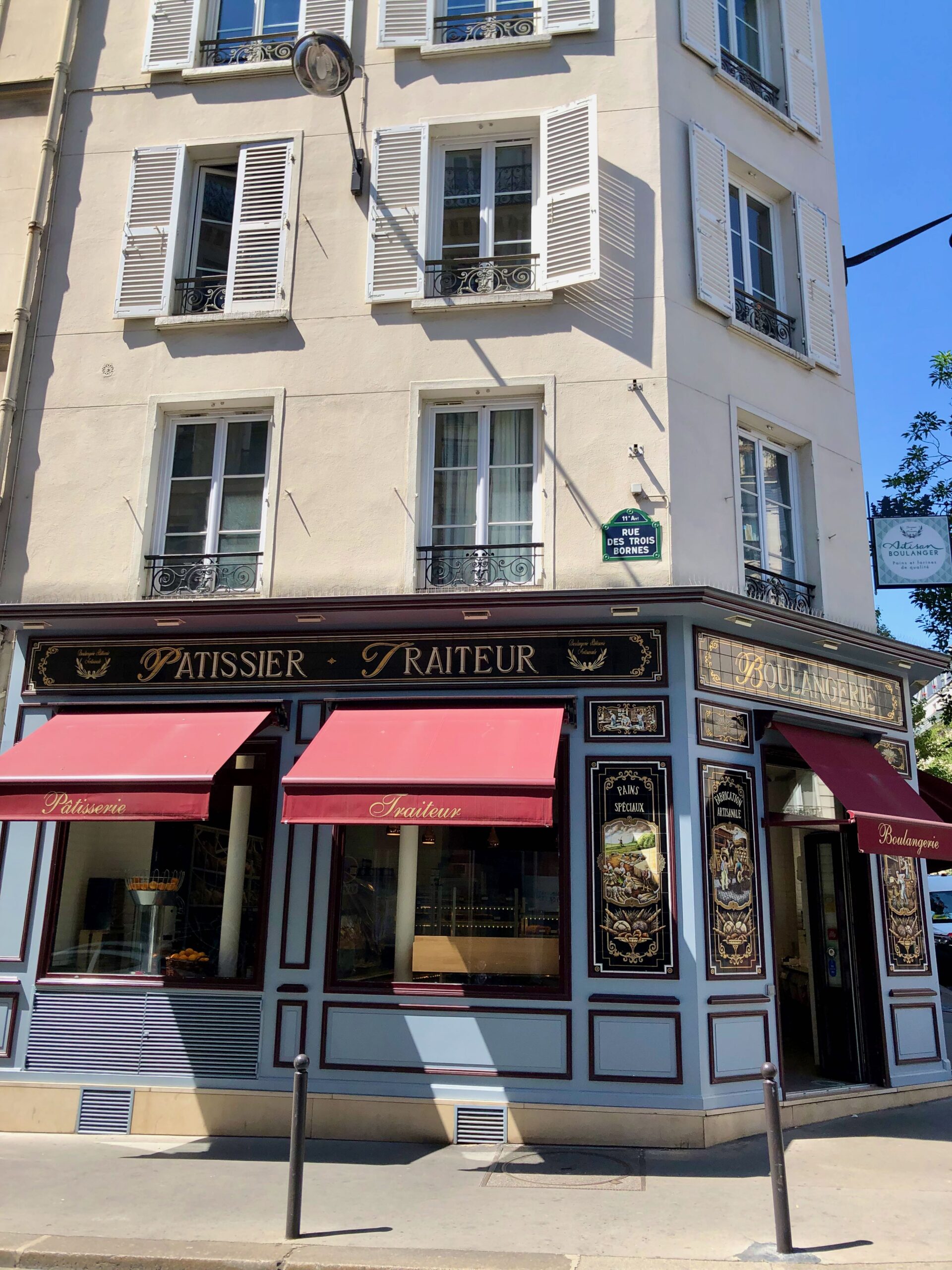This post may contain affiliate links, meaning that if you click and make a purchase, I may earn a commission at no additional cost to you. Read the full disclosure here.
Surely, I’m not the only one to have held a false stereotype about the French?
Before traveling to France, I definitely had certain expectations about French people and the country itself. As it turns out, some of my beliefs were inaccurate and nothing but misconceptions and stereotypes!
Have you heard any of these before?

“French People Are So Fit & Fashionable”
I don’t know about you, but I used to have a very specific image of what a French person looked like. This visual had been rooted in my subconscious over time by the outdated French textbooks and films I encountered throughout high school and college in America.
Let me guess… You are probably imagining a skinny individual wearing a striped shirt, a red scarf, and a beret, holding a baguette and smoking a cigarette? Well, I’m not quite talking about this tired cliché, but you’re on the right track…
My idea of a French person was someone looking effortlessly put together, yet wearing stylish and elegant clothing. They’re also thin, due to the chain-smoking (obvi) and also thanks to the healthy food choices ingrained in them during their two-hour, 5-course lunches in the public school cafeteria.
Well, if my cheeseball-loving, t-shirt-wearing, McDonald’s-obssessed French husband is any indication, let it be known that France is made up of diverse individuals. French people do not all look or dress the same. There are French people of all sizes. Some French people eat healthy and some go to McDonald’s for a McBaguette. There’s a range!
“All the Trains Are Super Fast in France”
Perhaps you’ve heard of France’s high-speed train—the TGV. These trains à grande vitesse (TGV trains) are mentioned so often, I really did believe that all trains in France would be super fast. Indeed, I had very high expectations of zipping around everywhere in the blink of an eye.
While it’s true that France boasts an extensive rail system, especially compared to the U.S., the speed and service provided can vary greatly depending on where you are traveling. This is something I learned first-hand when I lived in a small town called Mont-de-Marsan.
Truth be told, the local trains in France really can’t be categorized as “slow” if what you’re used to is train travel on the east coast of the United States. For example, to get to the major city of Bordeaux from Mont-de-Marsan, the quickest train is 1h28, with an average time of 1h37. We can compare this to a train trip of similar distance in the United States, from New Haven, Connecticut to New York City. The quickest trip is 1h39, but most of the offerings hover around 2 hours on average.
Arguably, there are less points of interest between Mont-de-Marsan and Bordeaux than between New Haven and New York City, but I think that that is beside the point. There are different types of trains in France, and not all of them are of the high-speed variety!
On the same line of thought, hopefully, you haven’t been deceived by the elegant SNCF sleeper train cars seen in Emily in Paris.
“Transportation and Travel Are Really Cheap”
When I left for my very first stay in Paris, I was a sophomore in college (of little means). Everyone told me that it would be so cheap to travel around. Once I was in France, I could supposedly just jump on a plane or train and go anywhere I wanted at a very low cost.
Admittedly, it seems that my idea of “cheap” was a bit different than everyone else’s at this time in my life. To give you an idea, I did live off of baguettes, the lowest-priced cheese I could find, and a few packets of ramen for my last couple of weeks in the capital that fateful year. This wasn’t by choice but out of respect to my bleeding bank account.
Anyway, for a university student, travel, even in Europe, can still be a significant expense. What all my well-meaning friends really meant was that travel would be cheaper than domestic travel in the United States. They were right about that, especially in light of all the reduced-price travel and cultural passes young adults have access to in Europe.
Relatively speaking, public transportation in France is very affordable. There are also a lot of options when it comes to trains, planes, and buses. Trips should be booked in advance though as prices do rise, particularly around vacations and holidays, just like anywhere else in the world.
“Healthcare Is Free in France”
Listen, there are a lot of great things about the French healthcare system, but today we are just going to focus on dispelling a big myth that I continue to hear all the time. Maybe you’ve heard it, too?
Healthcare in France is affordable for most people, but it is NOT free. It is true that all residents of France, regardless of employment status, can join the national healthcare system.
It should be noted that your income (or lack thereof) affects how much money you contribute to the system. For example, as a self-employed auto-entrepreneur in France, I contribute 21.1% of my income towards social charges (contributions sociales) which are used by the French government to fund infrastructure. One of those programs is health insurance. This part is probably not too shocking to you since we all know that there is nothing free in life—someone is always paying.
What did take me by surprise was learning that the majority of medical appointments are not fully covered by the general national program. Dental and vision care are notoriously not well reimbursed and often incur larger expenses. Whatever is not covered when you go to the doctor, is paid out of pocket. As a result, most French people enroll in private health insurance to get better coverage. Based on the way that French healthcare is depicted in American media, I figured I would just flash my fancy green carte vitale and not pay a cent more. Apparently, it doesn’t always work that way!
Are there any stereotypes that you believed or weren’t sure about, but when you traveled to France, they turned out to be wrong?
